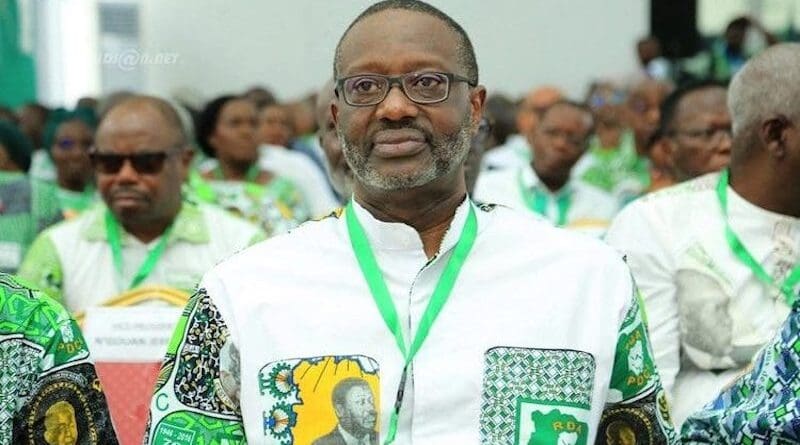Ex-Credit Suisse CEO To Lead Ivory Coast Opposition – OpEd
By IDN
By Lisa Vives
A former CEO of Credit Suisse, Tidjane Thiam, was voted by a wide margin to head the opposition Democratic Party.
He received 95% of the vote while his opponent, Jean-Marc Yace, the mayor of Cocody in the de facto capital, Abidjan, received 3.2 percent.
Thiam, 61, an Ivorian and French businessman and the executive chairman of Freedom Acquisition Corp, served in the cabinet of ex-President Henry Konan Bedie in the 1990s before leaving the West African country almost 25 years ago when Bedie was ousted in a coup.
In March 2020, he left the Swiss bank after it was learned that it had hired private detectives to spy on the former head of wealth management, Iqbal Kahn, after leaving for arch-rival UBS.
Thiam denied any involvement in the spying scandal, even while Switzerland’s financial regulator said that Credit Suisse had misled it about the scale of the spying. The regulator said the bank planned seven different spying operations between 2016 and 2019 and carried out most of them.
In a rare rebuke, the regulator said there were serious organizational shortcomings at Credit Suisse and that the bank had even tried to cover its tracks by doctoring an invoice for surveillance.
In response, Credit Suisse condemned the spying and took “decisive” steps to improve its governance and strengthen compliance. Thiam resigned shortly after.
The PDCI election was held at the Felix Houphouet Boigny Foundation for Peace Research in Yamoussoukro, the dejure capital of Ivory Coast.
Côte d’Ivoire may be one of West Africa’s biggest economies, but most of its people have no share in the country’s economic success. Almost 40 percent of the country’s about 27 million people are living below the national poverty line; more than 40 percent are food insecure.
Ghost children
According to UNICEF, the birth of 230 million children under the age of 5 are not registered. These “ghost children” are thus deprived of access to fundamental rights. In Ivory Coast, despite the efforts of the authorities, the problem is persistent, and even seems to be increasing with 35% of children unregistered.
Earlier this year, child welfare advocates filed a federal lawsuit asking a judge to force the Biden administration to block imports of cocoa harvested by children in West Africa that can end up in America’s most popular chocolate desserts and candies.
The lawsuit, brought by the U.S.-based International Rights Advocates, seeks to have the federal government enforce a 1930s era federal law that requires the government to ban products created by child labor from entering the U.S.
The non-profit group filed the suit because Customs and Border Protection and the Department of Homeland Security have ignored extensive evidence documenting children cultivating cocoa destined for well-known U.S. candy makers, including Hershey, Mars, Nestle and Cargill.
The major chocolate companies pledged to end their reliance on child labor to harvest their cocoa by 2005. Now they say they will eliminate the worst forms of child labor in their supply chains by 2025.
Côte d’Ivoire is the world’s largest producer and exporter of cocoa (30% of the world production), one of the three biggest producers and exporters of cashew and a major exporter of palm oil, coffee and oil. The country’s economy is mainly based on agriculture.
With this election, the Democratic Party (PDCI) hopes to rejuvenate its image following the death of its former leader Henri Konan Bedie, in early August at the age of 89.
Ouattara, 81, has not stated his intentions for 2025

